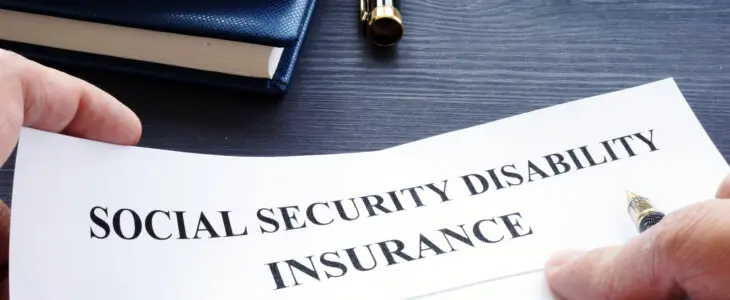When an injury or illness leaves you unable to work, the road to financial stability can feel uncertain. To make matters more complex, many long-term disability insurers require you to apply for Social Security Disability Insurance (SSDI) before they’ll release your benefits. But why is this step so important? And what can you do to make sure your claim is successful? In this guide, we’ll walk you through the SSDI claims process, explain why it’s often required by your insurer, and offer tips on how to avoid the common pitfalls that lead to claim denials.
Why Long-Term Disability Insurers Require SSDI Claims
It might surprise you to learn that long-term disability (LTD) insurers often require you to apply for SSDI benefits if you are unable to work due to injury or illness. This is because your LTD benefits might be reduced or offset by the amount you receive from SSDI. While your LTD insurance is meant to replace a portion of your income, SSDI benefits are provided by the government, and long-term disability insurers want to minimize their payout by taking advantage of any other available benefits.
In some cases, your insurer may even require you to apply for SSDI as part of your policy’s terms. Failing to apply could lead to a denial or reduction in your LTD benefits. Therefore, applying for SSDI is often a necessary step in receiving the full benefits available to you during your recovery.
Steps to Take When Filing for SSDI
- Understand the Eligibility Requirements
To qualify for SSDI, you must prove that you have a condition that is severe enough to prevent you from working and that the condition will last at least one year or is expected to result in death. The Social Security Administration (SSA) has a strict definition of disability, and meeting this definition is the first step in the application process. - Gather Your Medical Records
One of the most important parts of your SSDI application is the medical evidence you provide. The SSA will need detailed information about your injury or illness, including records from your doctors, hospitals, and any other healthcare providers involved in your treatment. Be thorough in gathering and submitting all relevant medical documentation. - Complete the SSDI Application
Once you have your medical records in order, you can complete the SSDI application. This can be done online, over the phone, or at your local SSA office. You’ll be required to provide information about your medical condition, work history, and the treatment you’ve received. It’s important to be as detailed as possible when answering questions to avoid any confusion or delays in the process. - Consider Working with an Attorney
The SSDI claims process can be complex, and many initial claims are denied. Working with an attorney who specializes in SSDI claims can help ensure that your application is complete and that you are following the correct procedures. An experienced attorney can also help you appeal a denied claim.
How to Avoid SSDI Claim Denials
Unfortunately, many SSDI claims are initially denied. However, there are steps you can take to improve your chances of success:
- Ensure Thorough Documentation: Having comprehensive medical documentation that clearly shows how your condition affects your ability to work is vital. Incomplete or insufficient documentation is a common reason for denials.
- Follow SSA Guidelines: Pay close attention to the specific guidelines provided by the SSA, including how to complete your application and what medical evidence is required.
- Respond to Requests Promptly: After your application is submitted, the SSA may request additional information. Responding quickly and thoroughly can help avoid delays or denials.
- Be Honest and Accurate: It’s important to be honest and accurate in all parts of your application. Misrepresentation or providing false information can result in a denial and other legal issues.
Your Rights and Support
Filing for SSDI benefits is often a necessary part of managing your long-term disability claim. The process may seem complex, but with the right guidance, you don’t have to face it on your own. With the proper preparation, support, and legal advice, you can improve your chances of securing the benefits you need to cover your living expenses during your recovery.
If you’re facing challenges with your SSDI or long-term disability claim, don’t hesitate to reach out. At Stanfield Law Firm, we can help you understand your options, guide you through the application process, and ensure your rights are protected.
Ensuring Your Long-Term Disability Claim is Handled Properly
If you need assistance with your SSDI claim or long-term disability benefits, contact Stanfield Law Firm today to schedule a consultation. Our team is committed to providing you with the legal support you need during this challenging time.

